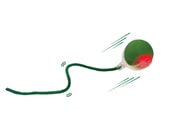That time they tried to take our U away
I remember back in the…60s, maybe early 70s? Perhaps it was because we'd switched to decimal currency that inspired the thought, but someone in the government decided that it was about time we got our spelling in line with our friends on the other side of the Pacific, and we should therefore drop those superfluous "u"s from words such as "colour". It was quite the thing at the time, with newspapers and magazines getting on board…until everybody decided that was silly, and they stopped doing it, and we got our "u"s back. I wonder what might have happened, would z have taken the place of s in some words? Would we have lost a bunch of double letters? Would we have started saying "aluminum" instead of "aluminium"? How far could this have gone? Would we have started pronouncing "zed" as "zee"? Would we have eschewed the metric system? I have to admit to being old-fashioned and liking the weirdness of English spelling just the way we've inherited it. I know it can be tricky, but I love to keep in mind that English is pretty much the world's favourite second language (after the one they were brought up speaking)






